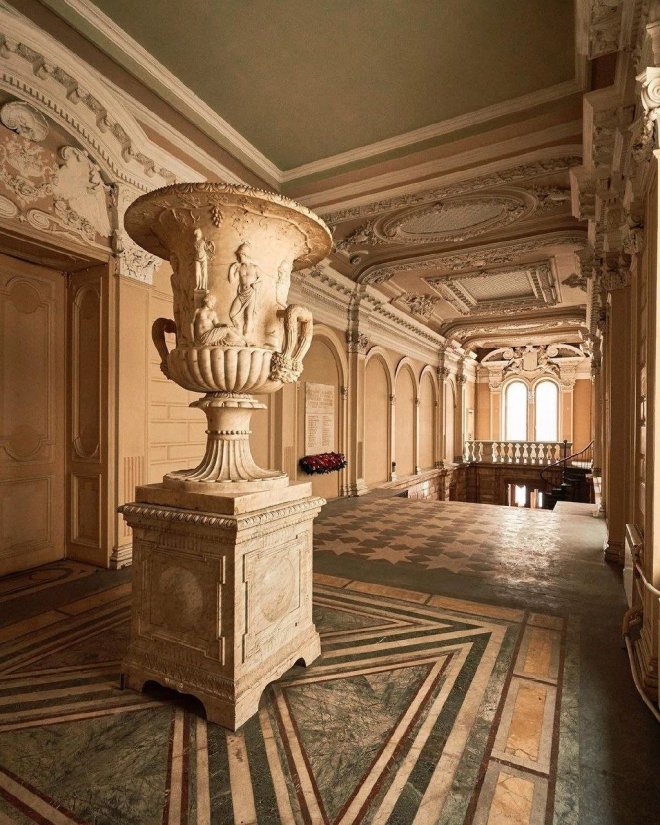
Recently, ‘Peterskaya Uslada’ (Petersburg Delight) posted pictures on Twitter of the extraordinary marble hall that can be found in the Palace that was owned from 1830 onward by the Kushelev-Bezborodko family (see image above). Although the interior was remodelled in the middle of the 19th century by the son of the first owner, Count Nikolay Kushelev-Bezborodko, its style is eclectic, incorporating Louis XlV and 18th century rococo features that take their cue from an earlier age. We also of course have marble halls here in England; the great carved space in Stowe House in Buckinghamshire is just one example.
Marble halls feature twice in my novel, Small Acts of Kindness, and both are inspired by pictures such as the one above. In the first chapter my hero arrives home from a trip abroad. At his benefactor’s palace in Saint Petersburg he runs ‘up the flight of stone stairs that rose in a great sweep to the entrance hall on the first floor’. Later in the book the imaginary estate house of my hero’s cousins benefits from an imposing entrance where ‘caryatids lifted the arches of the grey marbled hall; great porphyry urns were twinned along the flanks of the stone stairway’.
I find the icy magnificence of these great carved marble caverns evocative. Perhaps that was why I was so taken by the novel recently chosen by my book group, Susanna Clark’s ‘Piranesi’, published in 2020 by Bloomsbury. In this extraordinary book, which won the Women’s Prize for Fiction, the author creates an imaginary world in which infinite great halls, of many different architectural styles, stretch away in every direction, populated by a plethora of statues. The title of the novel implies that Clark was inspired by the extraordinary architectural drawings of Giovanni Battista Piranesi (1720-1778), which in turn must have informed the architects of these wonderful places that can still be seen today.
*The song ‘I dreamt I walked in marble halls’ features in the opera The Bohemian Girl, written in 1843 by the Irish composer, William Balfe